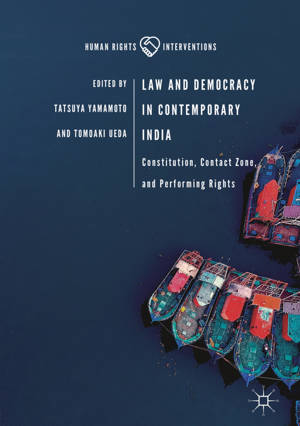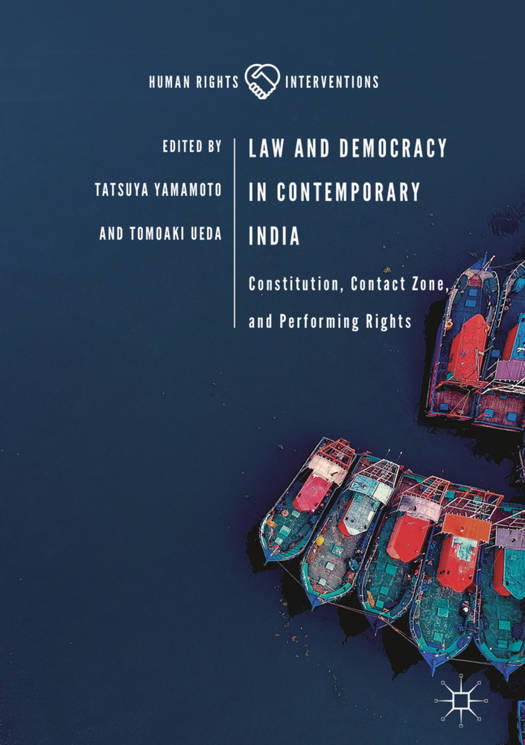
- Retrait gratuit dans votre magasin Club
- 7.000.000 titres dans notre catalogue
- Payer en toute sécurité
- Toujours un magasin près de chez vous
- Retrait gratuit dans votre magasin Club
- 7.000.0000 titres dans notre catalogue
- Payer en toute sécurité
- Toujours un magasin près de chez vous
Law and Democracy in Contemporary India
Constitution, Contact Zone, and Performing Rights
Description
This book analyses legal orders, actors and democracy in contemporary India, with a particular focus on the everyday contexts and dynamics of human rights, citizenship and socio-economic rights and laws.
The contributions explore both 'institutionalization from above', where the judiciary and legislative body aim to govern people, and 'institutionalization from below', where the governed attempt to expand their substantive rights embedded within their everyday lives. This analysis identifies contact zones between the two directions, which act as spaces for democratic participation and negotiation. Such a perspective should be useful to both those who are interested in Indian politics, and anthropologists and sociologists working on dynamics of laws and rights.
Spécifications
Parties prenantes
- Editeur:
Contenu
- Nombre de pages :
- 222
- Langue:
- Anglais
- Collection :
Caractéristiques
- EAN:
- 9783319958361
- Date de parution :
- 12-12-18
- Format:
- Livre relié
- Format numérique:
- Genaaid
- Dimensions :
- 148 mm x 210 mm
- Poids :
- 535 g

Les avis
Nous publions uniquement les avis qui respectent les conditions requises. Consultez nos conditions pour les avis.





